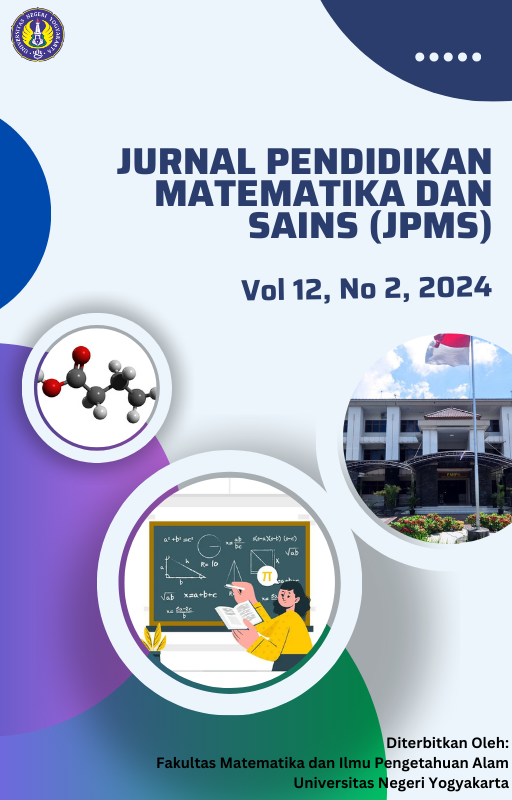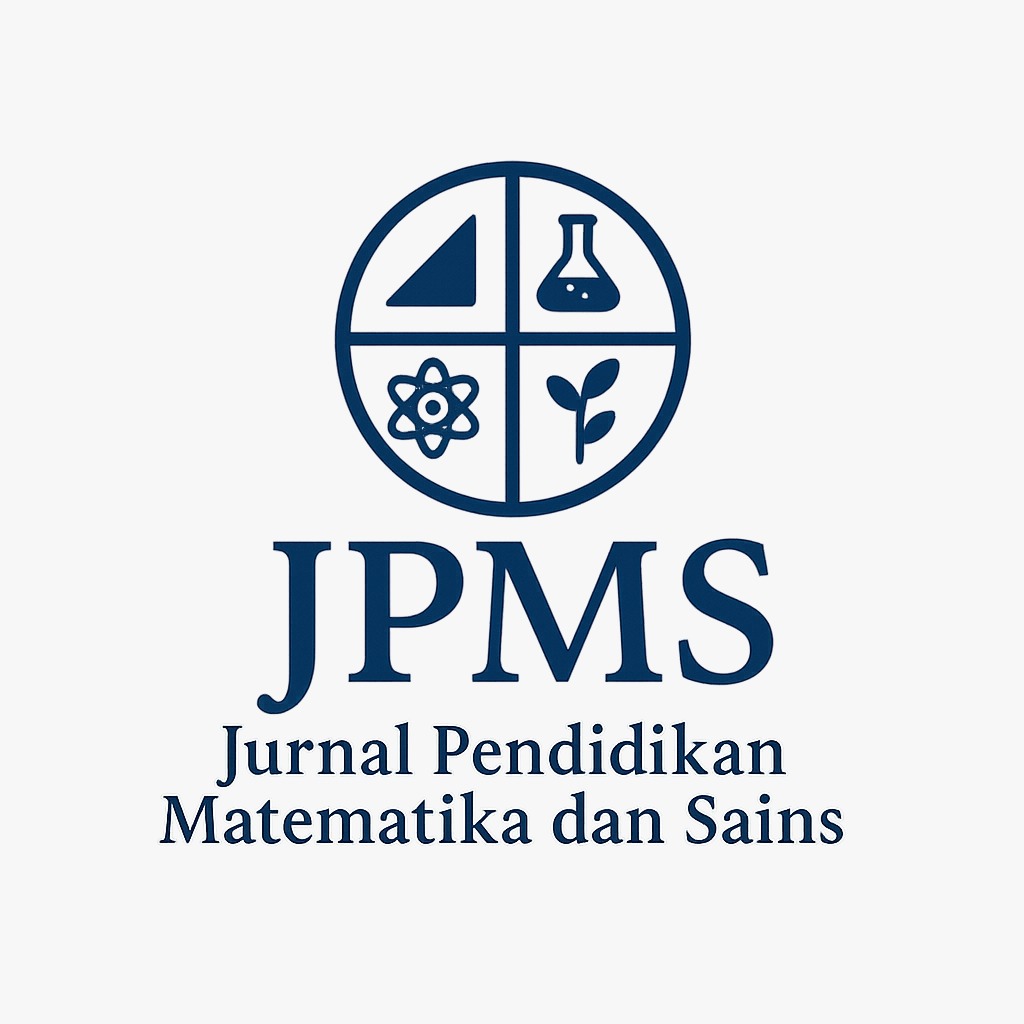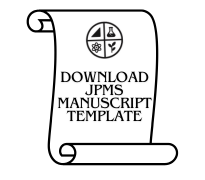Developing the Chemical Equilibrium-Scientific Habits of Mind Scale: Validity and Reliability Analysis
DOI:
https://doi.org/10.21831/jpms.v12i2.77612Keywords:
Chemical equilibrium, Scientific habits of mind, Reliability, ValidityAbstract
References
Alfiana, N., & Wiyarsi, A. (2023). Students' scientific habits of mind from the perspective of educational levels and gender. AIP Conference Proceeding, 2556 040014. https://doi.org/10.1063/5.0110499
Asrizal, Amran, A., Ananda, A., Festiyed, F., & Sumarmin, R. (2018). The development of integrated science instructional materials to improve students' digital literacy in scientific approach. Jurnal Pendidikan IPA Indonesia, 7(4), 442–450. https://doi.org/10.15294/jpii.v7i4.13613
Ball, A., Joyce, H. D., & Anderson-Butcher, D. (2016). Exploring 21st century skills and learning environments for middle school youth. International Journal of School Social Work, 1(1), 1-15. https://doi.org/10.4148/2161-4148.1012
Belayneh, K. D., & Belachew, W. (2024). TSPCK-Based instruction and academic achievement of grade 11 students on chemical kinetics and equilibrium. Cogent Education, 11(1). https://doi.org/10.1080/2331186X.2023.2292873
Burgess, J. (2012). The impact of teaching thinking skills as habits of mind to young children with challenging behaviours. Emotional and Behavioural Difficulties, 17(1), 47-63. https://doi.org/10.1080/13632752.2012.652426
í‡alik, M., & Cobern, W. (2017). A cross-cultural study of CKCM efficacy in an undergraduate chemistry classroom. Chemistry Education Research and Practice, 18(4). 691 – 709. DOI: 10.1039/C7RP00016B
í‡alik, M., & Coll, R. (2012). Investigating socio-scientific issues via scientific habits of mind: Development and validation of the scientific habits of mind survey. International Journal of Science Education, 34(12), 1909-1930. doi: 10.1080/09500693.2012.685197
í‡alık, M., íœltay, N., Kolomuí§, A., & Aytar, A. (2015). A cross-age study of science student teachers' chemistry attitudes. Chemistry Education Research and Practice, 16(2), 228–236. doi:10.1039/c4rp00133h
í‡alik, M., Turan, B., & Coll, R.K. (2014). A cross-age study of elementary prospective teachers' scientific habits of mind concerning socio-scientific issues. International Journal of Science and Mathematics Education, 12(6), 1315-1340. doi:10.1007/s10763-013-9458-0
Gauld, C.F. (1982). The scientific attitude and science education: A critical reappraisal. Science Education, 66, 109–121.
Gauld, C.F., & Hukins, A. A. (1980). Scientific attitudes: a review. Studies in Science Education, 7, 129-161.
Gauld, C.F. (2005). Habits of mind, scholarship and decision making in science and religion. Science & Education, 14, 291–308. http://dx.doi.org/10.1007/s11191-004-1997-x
Griffin, P., McGaw, B., & Care, E. (2012). Assessment and teaching of 21st century skills. Spinger. https://doi.org/10.1007/978- 94-007-2324-5
Hayat, M. S., Rustaman, N. Y., Rahmat, A., & Redjeki, S. (2019). The improvement of prospective teachers' habits of mind during the 5E+e inquiry learning program in holticulture course. International Journal of Environmental & Science Education, 14(9), 535-545
Marzano, R. J. (1994). Performance assessment on dimensions of learning. Alexandria, VA 22314: ACSD.
Nunnaly, J. C., & Bernstein, I. H. (1994). The assessment of reliability. Pscychometric Theory, 3, 248–292
Pratama, F. I., & Rohaeti, E. (2023). Students' chemical literacy ability on hydrocarbon material: a case of toxic compounds in fried food. Jurnal Penelitian Pendidikan IPA, 9(9), 6795 – 6802. https://doi.org/10.29303/jppipa.v9i9.4554
Pratama, F. I., & Rohaeti, E. (2024). How Does "Chemistry Challenge" E-book Affect the Chemical Literacy Profile? A Study to Test Learning Media Effectiveness. Jurnal Penelitian Pendidikan IPA, 10(5), 2253–2260. https://doi.org/10.29303/jppipa.v10i5.7018
Pratama, F. I., Rohaeti, E., & Laksono, E.W. (2024). Senior High School Students' Scientific Habits of Mind Profile on Chemical Equilibrium: Case of Health and Environmental Topics. Jurnal Pendidikan Matematika dan Sains, 12(1), 44–52, https://dx.doi.org/10.21831/jpms.v12i1.74613
Pratama, F. I., Rohaeti, E., & Laksono, E. W. (2024). Empirical Foundations for Developing New Learning Models to Improve Chemical Literacy, Scientific Habits of Mind, and Science Process Skills of Chemistry Education Students. Jurnal Penelitian Pendidikan IPA, 10(10), 8062–8069. https://doi.org/10.29303/jppipa.v10i10.8661
Thiagarajan, S., Semmel, D. S., Semmel, M. I. (1974). Instructional Development for Training Teachers of Exceptional Children: A Sourcebook. Retrieved from: https://files.eric.ed.gov/fulltext/ED090725.pdf
Quílez, J. (2019). A categorization of the terminological sources of student difficulties when learning chemistry. Studies in Science Education, 55(2), 121–167. https://doi.org/10.1080/03057267.2019.1694792
Wiyarsi, A., & í‡alik, M. (2019). Revisiting the scientific habits of mind scale for socio-scientific issues in the Indonesian context, International Journal of Science Education, DOI: 10.1080/09500693.2019.1683912
Wiyarsi, A., í‡alik, M., Priyambodo, E., & D. Dina. (2023). Indonesian prospective teachers' scientific habits of mind: A cross-grade study in the context of local and global socio-scientific issues. Science & Education. https://doi.org/10.1007/s11191-023-00429-4
Wiyarsi, A., Prodjosantoso, A. K., & Nugraheni, A. R. E. (2021). Promoting students' scientific habits of mind and chemical literacy using the context of socio-scientific issues on the inquiry learning. Forntiers in Education. doi: 10.3389/feduc.2021.660495
Yakmaci-Guzel, B. (2013). Preservice chemistry teachers in action: An evaluation of attempts for changing high school students' chemistry misconceptions into more scientific conceptions. 1(1), 95–104. doi:10.1039/c2rp20109g
Downloads
Published
How to Cite
Issue
Section
Citation Check
License
Jurnal Pendidikan Matematika dan Sains allows readers to read, download, copy, distribute, print, search, or link to its articles' full texts and allows readers to use them for any other lawful purpose. The journal allows the author(s) to hold the copyright without restrictions. Finally, the journal allows the author(s) to retain publishing rights without restrictions
- Authors are allowed to archive their submitted article in an open access repository
- Authors are allowed to archive the final published article in an open access repository with an acknowledgment of its initial publication in this journal

This work is licensed under a Creative Commons Attribution-ShareAlike 4.0 Generic License.





